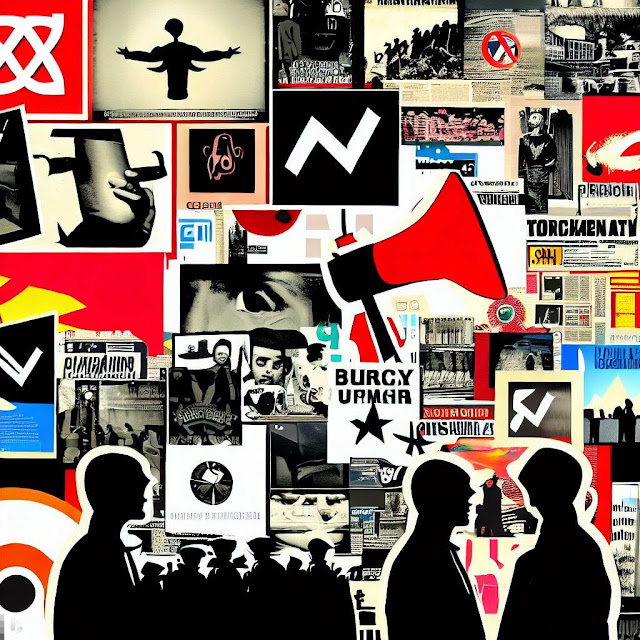Propaganda: The Hidden Enemy of Critical Thinking and Democracy
Learn to Think for Yourself: Don’t Let Propaganda Fool You!
How to Spot and Resist Propaganda in a Media-Saturated World
In this article, we will explore the definition, types, techniques and effects of propaganda and provide some practical tips and strategies to help you spot and resist propaganda in your daily life.
We live in a world where we are constantly exposed to different forms of propaganda, from various sources and with different agendas.
Propaganda can influence our thoughts, feelings, beliefs and actions in subtle or obvious ways.
How can we protect ourselves from being manipulated or misled by propaganda?
How can we develop critical thinking skills and media literacy to analyze and evaluate the information we receive? How can we form our own opinions based on reason and evidence and communicate them effectively?
We often see the world through the lens of our beliefs and understanding, which can limit our ability to perceive reality objectively.
Objective reality is crucial for communicating ideas effectively and accurately among different people.
However, my opinions on the nature of existence are not absolute or universal. They are influenced by many factors, such as my culture, education, experiences, and emotions. While I am living my life, I am also aware of the political and social issues that affect me and others around me.
One of these issues
is the use of propaganda by the government and the media to shape public opinion and behavior.
Propaganda is **carefully curated information, ideas, or rumors deliberately spread** for various purposes, such as promoting a certain ideology, agenda, or product.
- Propaganda has been used in the United States for a long time, especially during wars¹²³⁴, but also in peacetime to influence domestic and foreign affairs.
- Propaganda can be based on facts or lies, or a mixture of both. It can use various techniques, such as emotional appeals, stereotypes, slogans, symbols, censorship, and repetition.
- Propaganda can have positive or negative effects, depending on the goals and methods of the propagandists and the reactions of the audience.
- Propaganda can inform or misinform, persuade or manipulate, inspire or frighten, unite or divide people.
- Propaganda can also create a false sense of reality by presenting selective or distorted information that does not reflect the complexity and diversity of the world.
This can lead to a loss of critical thinking and independent judgment among the people who are exposed to propaganda. It can also cause conflicts and misunderstandings among different groups of people who have different perspectives and values.
Are you constantly bombarded with propaganda from various sources, such as advertising, radio, newspaper, posters, books, television, films and social media?
- Some of this propaganda may be obvious and easy to recognize, but some may be subtle and hidden.
- Some of this propaganda may align with our own views and preferences, but some may challenge or contradict them.
- Some of this propaganda may be harmless or beneficial, but some may be harmful or detrimental.
Therefore, we need to be aware of the existence and effects of propaganda in our society and in our lives.
We need to be able to analyze and evaluate the information we receive from different sources and to distinguish between facts and opinions, evidence and assumptions, logic and fallacies. We need to be able to question and verify the claims and arguments made by the propagandists and to seek alternative or opposing views.
We need to be able to form our own opinions based on reason and evidence and to express them respectfully and constructively. We need to be able to resist the influence of propaganda that tries to deceive us or exploit us through our emotions. We need to be able to recognize and appreciate the diversity and complexity of reality that cannot be reduced to simple or binary categories. We need to be able to think for ourselves and act responsibly as citizens of a democratic society.







Comments
Post a Comment